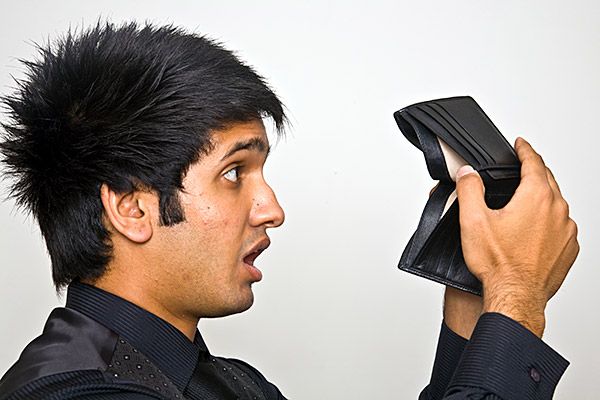In-state, Out-of-District, Out-of-State
1. DEFINITIONS
- Base Mileage – The distance between the traveler's residence and home base/Campus or Center. Also known as commuting miles.
- Baggage Handling – Amounts paid for the loading, unloading or transport of the traveler’s baggage.
- College Reimbursement Rates – The College follows the rates established in the State of Arizona Accounting Manual, under the Travel Policy. The “Maximum Transportation, Lodging and Meal Reimbursement Rates” is available in each Campus/Center Office and is also available at this Web page: https://gao.az.gov/sites/default/files/2025-01/5095%20Reimbursement%20Rates%20250127.pdf
- Conference-designated Lodging – The hotel at which the conference is being held, or the hotel(s) specified in the conference brochure, which offer lodging at a discounted rate for the conference. Note: The College does not pay for hotel upgrades.
- Home base/ Campus or Center – The location where a College employee is assigned to work, spends the greatest portion of regular working time and to which the employee returns on completion of a special assignment.
- In-District Travel – Travel incurred within Navajo County and Apache County. No prior approval is required unless the travel involves an overnight stay.
- In-State Travel – Travel incurred within the State of Arizona. Prior approval from the appropriate Executive Team member is required.
- Meal Reimbursement – The amount not to exceed the maximum per diem rate allowed.
- Meal and Incidental Expenses – The cost of meals and incidental expenses, including gratuities, laundry, etc. incurred for approved travel.
- Out-of-District Travel – Travel incurred in Arizona, outside of Navajo and Apache Counties. Prior approval from the appropriate Executive Team member is required.
- Out-of-State Travel – Travel incurred within the perimeters of the United States other than the State of Arizona. Prior approval from the President is required.
- Overnight Travel – Travel spanning a period of two (2) calendar days and requiring substantial sleep or rest while more than thirty-five (35) miles away from the traveler's residence or home base.
- Residence – The actual dwelling place of an individual without regard to any other legal or mailing address.
- Traveler – Every College employee or authorized representative, including members of the District Governing Board and committees, and students, who is in travel status.
- Travel Status – The designation of an employee or authorized representative conducting official business away from their designated home base requiring approved travel.
- Executive Team – The Executive Team consists of the President, Vice President for Learning and Student Services, Chief Business Officer, Chief Operations Officer and Chief Information Officer.
2. OVERVIEW
The College expects all resources designated for travel purposes to be used efficiently. Employees and authorized representatives requesting travel expenses must follow procedures which include authorization, reporting and reimbursement schedules.
College rates described in this procedure are linked to the reimbursement rates established by the State of Arizona. The current State of Arizona reimbursement rates are defined as those set by the Arizona Department of Administration and approved by the Joint Budget Legislative Committee.
3. REQUIREMENTS BEFORE TRAVELING
- Employees and authorized representatives must complete a Travel Request – Authorization Form and obtain the necessary approvals prior to travel. Out-of-District and In-state travel requires approval of the appropriate Executive Team member. Out-of-State travel requires the President's approval.
- The President will receive written authorization from the Chief Operations Officer for all Presidential travel requests and reimbursements, as designated by the District Governing Board.
4. LIMITATIONS
Reimbursement is limited to expense of travel by the most direct and commonly traveled route and/or by the most economical means. The College will not reimburse any personal business travel expense or upgrades.
The College will not reimburse for base mileage, i.e. commuting miles.
5. TRANSPORTATION
For all categories of travel, the College allows expenses for common carrier fares, such as privately owned motor vehicle or aircraft mileage, bridge and road tolls, necessary taxi or public transportation, motor vehicle rental, and reasonable baggage handling expenses.
The College will reimburse expenses that are in the best interest of the College, considering direct expense as well as the traveler's time. When more than one traveler uses the same motor vehicle, the College allows only one claim for reimbursement.
- The College requires a valid driver's license valid in the United States (verified by the Campus or Center office) if the traveler is driving a College, private or rented motor vehicle on College business.
- College-Owned Motor Vehicles:
- The College has a fleet of vehicles for use by travelers.
- A completed Vehicle Use Agreement is required to use a fleet vehicle.
- Fleet vehicles for In-District Travel are arranged through Campus and Center offices by completing a Vehicle Request Form.
- For Out-of-District Travel using a fleet vehicle, a completed and authorized Travel Request – Authorization Form must be submitted to the appropriate Campus or Center manager prior to the requested travel starting date.
- Fleet vehicles are generally not provided in association with airline travel.
- Fleet vehicles may not be used for personal travel.
- Gas cards are issued with each fleet vehicle upon request, and must be used only for that fleet vehicle. Gas card charges must be signed by the authorized driver only and the NPC fleet vehicle number must be listed on the charge slip. Drivers should look for self-service gas stations at the lowest fuel cost possible. Gas cards are issued for fuel purchase only.
- Purchases exceeding $500 for services, repairs, or parts associated with a fleet vehicle require authorization from the Director of Facilities and Transportation. If possible the traveler should have the service, repair or part invoiced to the College. Otherwise the Director of Facilities and Transportation. If possible, the traveler should have the service, repair, or part invoiced to the College. Otherwise the Director of Facilities and Transportation or the traveler will have to make other payment arrangements that will be reimbursed by the College. Emergency phone numbers are listed in the fleet vehicle document packet in the glove compartment.
- The Transportation Department must be notified immediately in the case of breakdown or accident. Instructions and an accident report form are located in the glove compartment and are also printed on the back of the Vehicle Request Form.
- Users of fleet vehicles are required to maintain driving standards in strict conformance to the law. Violation of the traffic safety code may result in termination of driving privileges. All citations incurred are the responsibility of the driver, unless it is determined that the citation resulted from a fleet vehicle defect.
- Proper use of safety belts is required any time the fleet vehicle is in motion.
- Infants, young children or unauthorized adults must not be transported in fleet vehicles without prior approval from the Chief Business Officer.
- Changes in planned use of fleet vehicles, including cancellations, changes in schedule, and early returns, must be reported to the Campus or Center office as soon as possible.
- Fleet vehicles must be returned to the appropriate Campus or Center with at least one-half tank of fuel.
- Prior to returning fleet vehicle keys, users of fleet vehicles must remove all garbage, litter, debris, and personal belongings accumulated in the fleet vehicle during travel.
- As soon as travel has been completed, fleet vehicles must be returned to the designated parking lot; keys, gas cards, charge tickets, and completed Vehicle Use Summary Forms must be returned to the Campus or Center office or placed in the designated drop box.
- Privately-Owned Vehicle:
- A traveler using a privately-owned motor vehicle for College business may receive mileage reimbursement regardless of eligibility for lodging or per diem reimbursements.
- Mileage expense will be reimbursed at the rate currently established by the State of Arizona for employees traveling on official College business.
- If travel begins or ends at the traveler's residence, mileage will be computed from the residence or the designated home base, whichever is less.
- For out-of-state travel, mileage will be reimbursed at either the rate set as described in 5.C.2 above or the coach airfare to the same destination, whichever is less.
- If a traveler is authorized to use a privately-owned vehicle, and this method is not the most efficient use of College resources, the traveler is only eligible for the same meal allowance as they would be using the most expedient method of transportation. The traveler is responsible for providing the support for their calculations. Additionally, time expended during regular workdays for a less-expedient method of transportation must be taken as annual leave.
- Travelers using a privately-owned motor vehicle will be reimbursed mileage at the rate as described in 5.C.2 above, computed by either the actual odometer readings or map mileage. If map mileage is used, enter "map mileage" in place of odometer readings. The use of Internet mapping programs to determine map mileage is permissible provided that a printout of the program showing the addresses and the calculation is included with the travel claim.
- Travelers driving a privately-owned vehicle on official business must have current vehicle insurance in compliance with A.R.S. §28-4009.
- Personal automobile liability insurance will be primary and College liability insurance will be excess for travelers driving a privately-owned vehicle involved in an accident and found to be at fault. The College does not provide coverage for damage to or the loss of privately-owned vehicles.
- Rented Motor Vehicles:
- All rented motor vehicles must be economical and for the advantage of the College and not for the personal convenience of the traveler. The Executive Team Member who supervises the traveler is responsible for determining if the advantages of using a rented motor vehicle outweigh the costs of other modes of transportation.
- Travelers requesting reimbursement for rented motor vehicles must submit original itemized receipts.
- Travelers using rented motor vehicles will not be allowed to claim mileage. Gasoline purchases are reimbursable with the submission of original itemized receipts.
- Commercial Air Carriers:
- Allowing for reasonable flight times, reimbursement for commercial air travel shall be limited to the lowest fare available. Baggage fees for one bag will be reimbursed. Fees related to early check-ins, preferred boarding, etc. are the traveler’s responsibility and will not be reimbursed. Baggage fees for extra bags required for extended personal travel will not be reimbursed. Reimbursement may exceed the lowest fare only if seats are unavailable at the lowest fare or if air travel at a higher fare will result in a clear cost savings or other benefit to the College.
- Travelers must submit original itemized receipts to be reimbursed for airfare. with sufficient detail to determine the category of the fare, dates of travel, and price of the ticket.
- Flight insurance will not be reimbursed.
- Airport storage or parking for a vehicle will be reimbursed and requires an original itemized receipt. Parking is reimbursed at the "economy" rate. Parking upgrades are not reimbursable unless they are the only option.
- Railroad or inter-city bus travel may be used when convenient or economical and its use will not involve excessive travel time. Travelers must submit receipts for reimbursement.
- Taxi service, shuttle service, public transportation and other local transportation may be reimbursed without receipts. The most economical means of transportation shall be used in traveling to and from airports.
- Bridge and road tolls are reimbursable without receipts.
- The College will reimburse reasonable charges for baggage storage and baggage handling without receipts.
- Tips for transportation, other than for baggage handling, are to be paid from the traveler's meal and incidental expense allowance.
6. TRAVEL ADVANCES
- Travelers requesting an advance must submit the request on a Travel Request - Authorization Form.
- Travel advance requests are due to the Business Office at least ten (10) business days before the date the advance is needed.
- In case of a canceled trip, travelers must return travel advances to the Business Office within five (5) business days. Failure to submit repayment may result in automatic payroll deduction.
- Travel advance checks are made payable to the traveler and will be available for pick up at the appropriate Campus or Center office by the date requested.
- Travelers must reconcile travel advances and expenses by submitting a completed Travel Reimbursement Claim to their immediate supervisor within five (5) business days from the final day in travel status. If the travel advance exceeds allowable expenditures, the traveler must return the difference to the Business Office within five (5) business days.
- The Business Office may collect travel advances that are unresolved after ten (10) business days from the final day in travel status through automatic payroll deduction.
7. MEAL AND INCIDENTAL EXPENSES (M&IE)
- To be eligible for reimbursement the traveler must be in travel status for a minimum of eight (8) hours.
- Meal Allowances
- Regardless of any circumstance or condition, a traveler may not claim reimbursement for more than three (3) meals in any single calendar day or in any period of twenty-four (24) consecutive hours. Reimbursement of meals and incidental expenses will be for the per diem rate established by the State of Arizona.
- To be reimbursed for any meal, the traveler must show where and when the travel status began and ended.
- The following guidelines will be applied to the reimbursement of amounts spent for meals:
- Breakfast is reimbursable up to the amount allowed for this meal when eligible travel status begins at or before 6 a.m., or when in travel status continually from the previous day's overnight travel and remaining in travel status until at least 8 a.m.
- Lunch is reimbursable up to the amount allowed for this meal when in eligible travel status throughout the entire time period between 10 a.m. and 2 p.m.
- Dinner is reimbursable up to the amount allowed for this meal when in eligible travel status at or after 7 p.m.
- When a traveler is entitled to reimbursement for three (3) consecutive meals in one day the amount expended for any particular meal is left to the traveler's discretion. The total for all meals and incidentals claimed may not exceed the daily per diem amount allowed.
- The traveler will not be reimbursed for the cost of alcoholic beverages consumed as part of a meal or purchased separately from a meal.
- While at conferences, optional meals that include professional development speakers and/or activities will be paid for by the College as part of the registration fee. Although the College recognizes the benefits of breakfast, lunch or dinner as social gatherings, A.R.S. §38-624.C, does not allow reimbursement beyond the normal allowable amount.
- Gratuities, laundry charges, and other incidental expenses incurred while on eligible travel status are reimbursable, but when combined with meal expenses may not exceed the daily per diem amount allowed.
8. LODGING
- The traveler must be on authorized travel status to be reimbursed for lodging costs. Lodging costs incurred within 35 miles of the traveler's home base or residence will not be reimbursed, unless an emergency exists and the appropriate Executive Team Member approves prior to the expense being incurred. Lodging must be at a commercial establishment, and the individual is required to request the lowest available rate (government, commercial, conference, etc.).
- Reimbursement of lodging expenses shall be at the rate currently established by the State of Arizona, plus applicable taxes. The location rate to be used is determined by the lodging establishment’s receipt. Reimbursement shall not exceed the single room rate when lodging is shared with an individual who is not on College business.
- Individuals staying at a conference-designated hotel may be reimbursed actual lodging cost. A conference brochure/agenda must accompany the lodging receipt. If no vacancies exist at conference-designated lodging, accommodations at alternate hotels in the immediate vicinity of the conference may be considered as conference-designated lodging if the rate does not exceed that of the conference lodging rate.
- If a department manager determines, in writing, that a situation exists which makes compliance with the maximums impractical, and the appropriate Executive Team Member approves, actual lodging cost may be reimbursed.
- The commercial establishment's original itemized receipt is required. Credit card receipts in lieu of the original lodging receipt will not be accepted.
- Lodging upgrades are not eligible for reimbursement.
- If two or more travelers share a room, reimbursement is to be claimed as follows:
- Each traveler should obtain a separate original itemized lodging receipt for each traveler's portion of the lodging cost. The total of the two (or more) itemized lodging receipts cannot exceed the total allowed lodging cost. When a room is to be shared, the travelers should request separate receipts in advance (upon registration) from the lodging establishment.
OR - If the establishment cannot issue separate original receipts, one traveler may submit the original itemized lodging receipt and the other traveler(s) may submit photocopies. However, each itemized receipt (original and photocopies) must be marked "shared lodging," and indicate the names of all travelers sharing the room.
OR - If the establishment cannot issue separate original lodging receipts, one traveler may submit the original itemized receipt for the total lodging cost. The original itemized lodging receipt must indicate the names of all travelers who shared the room.
- Each traveler should obtain a separate original itemized lodging receipt for each traveler's portion of the lodging cost. The total of the two (or more) itemized lodging receipts cannot exceed the total allowed lodging cost. When a room is to be shared, the travelers should request separate receipts in advance (upon registration) from the lodging establishment.
- If the original itemized lodging receipt is lost or destroyed; a photocopy may be submitted with the statement, "Treat as an original."
- Business-related communication charges for telephone, fax, and Internet connection are reimbursable if documented by an original itemized receipt. The most economic means of communication should be used.





